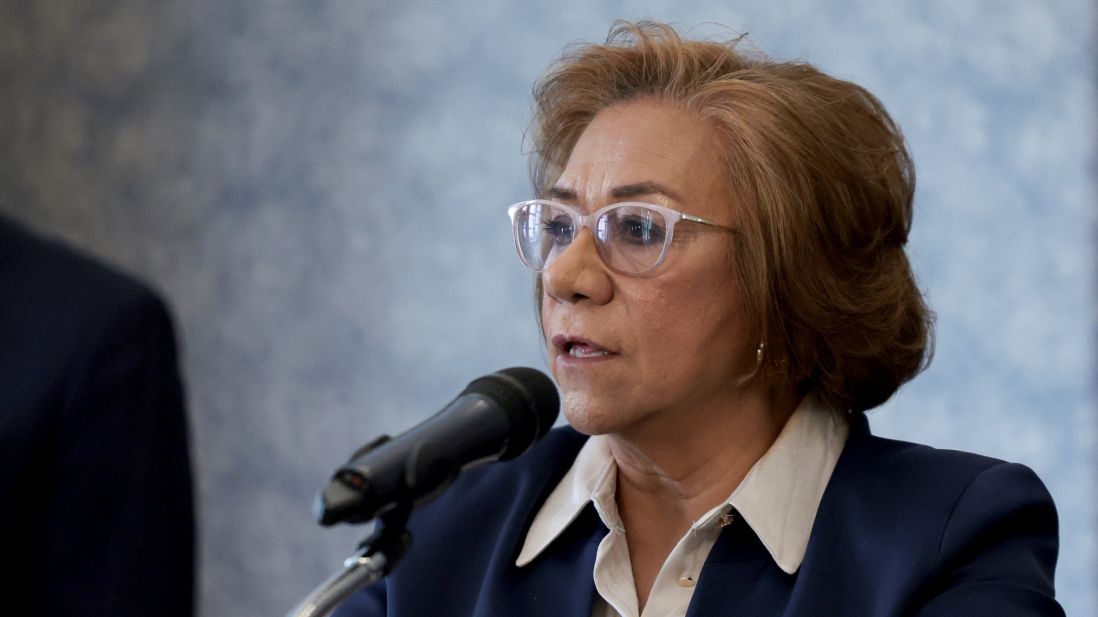President Ilham Aliyev says TRIPP corridor’s name signals long-term U.S. commitment
President Ilham Aliyev said the naming of the TRIPP corridor after U.S. President Donald Trump signals that the project will remain a priority for the...

Colombia said on Monday it has recalled its ambassador from Washington after U.S. President Donald Trump said he would raise tariffs on the South American nation and stop all payments to it, intensifying a feud stemming from U.S. military strikes on vessels allegedly transporting drugs.
Trump also called Colombia's leftist President Gustavo Petro an "illegal drug leader" on Sunday, which Petro's government described as offensive, marking a new low in relations between Bogota and Washington.
"Daniel Garcia-Pena, Ambassador of Colombia in the United States of America, has been recalled for consultations by President Gustavo Petro and is now in Bogota," Colombia's foreign ministry said. "In the coming hours the national government will inform of the decisions taken."
Petro has objected to the U.S. military's strikes against vessels in the Caribbean, which have killed dozens of people and inflamed tensions in the region. Many legal experts and human rights activists have also condemned the military actions.
Trump said U.S. financial aid to Colombia would be cut off and details about the new tariffs would be unveiled on Monday, but it was not clear what funding Trump was referring to.
Colombia was once among the largest recipients of U.S. aid in the Western Hemisphere, but the flow of money was suddenly curtailed this year by the shuttering of USAID, the U.S. government's humanitarian arm.
As of late Monday evening, the Trump administration had made no tariff announcement, but Petro had held a meeting with U.S. charge d'affaires John McNamara at the presidential palace. No details of the meeting were made available.
Colombia's largest trading partner
The oil-producing nation currently pays 10% tariffs on most imports to the U.S., the baseline level Trump has imposed on many countries.
The U.S. is Colombia's top trading partner, and shipments north account for 35% of the South American country's exports, according to the Colombian-American Chamber of Commerce, while 70% of imports from the U.S. are items not produced in Colombia.
Colombia's foreign ministry has vowed to seek international support for Petro, who first rose to prominence as a senator by exposing links between right-wing paramilitary groups involved in drug trafficking and corrupt politicians, as well as for the country's autonomy.
Petro on Sunday condemned a new bombing of a vessel which killed three people, saying the boat belonged to a "humble family," and not the leftist National Liberation Army rebel group, as claimed by U.S. Secretary of Defense Pete Hegseth in his own comments.
"Mr. Trump, Colombia has never been rude to the United States ... but you are rude and ignorant to Colombia," Petro said on X. "Since I am not a businessman, I am even less a drug trafficker. There is no greed in my heart."
Petro has pledged to tame coca-growing regions in the country with massive social and military intervention, but the strategy has brought little success.
Colombia's currency closed down 1.28% to 3,883 pesos per U.S. dollar in trading on Monday.
Colombia, a major exporter of oil, coal, coffee, flowers and bananas, posted a $338 million trade deficit with the U.S. between January and July, according to government statistics agency DANE.
Investors from the U.S. invested $2.27 billion in Colombia in the first half of the year, according to central bank figures, some 34% of total foreign investment received during that period.
Europe heads into the Munich Security Conference, on Friday (13 February), amid deepening unease over U.S. policy, as President Donald Trump’s hard-line stance on defence, trade and territory fuels doubts about Washington’s long-term commitment to transatlantic security.
American figure skating star Ilia Malinin endured a dramatic collapse in the men’s free skate on Friday night, falling twice and tumbling out of medal contention at the Milan Cortina Winter Olympics as Kazakhstan’s Mikhail Shaidorov surged to a surprise gold medal.
“Respected and feared globally,” U.S. President Donald Trump told troops at Fort Bragg on Friday (13 February), framing America’s renewed strength against to mounting pressure on Iran amid stalled nuclear talks.
Dubai-based global ports operator DP World said on Friday that its long-serving chairman and chief executive, Sultan Ahmed Bin Sulayem, has stepped down following mounting pressure linked to alleged ties to disgraced financier Jeffrey Epstein.
Speaking at Munich Security Conference, Ukrainian foreign minister Andrii Sybiha calls for decisive steps ahead of expected Geneva talks
Israel’s Foreign Minister Gideon Saar will attend U.S. President Donald Trump’s first Board of Peace meeting of leaders in Washington on 19 February, an Israeli official said on Saturday.
Britain, France, Germany, Sweden and the Netherlands said on Saturday (14 February) they are convinced that late Kremlin critic Alexei Navalny was poisoned with a lethal toxin in a Russian penal colony two years ago.
Day 8 of the Milano Cortina 2026 Winter Olympics showcased breathtaking athleticism, dramatic competition, and unforgettable moments across ice and snow. Creative photography captured both the intensity and artistry of the Games, highlighting every triumphant gesture, daring jump, and fan cheer.
Senior officials from Azerbaijan, the European Union and China used the stage at the Munich Security Conference to promote the Trans-Caspian International Transport Route, or Middle Corridor, as a fast-growing trade artery and a potential anchor of regional stability.
The U.S. Department of Homeland Security (DHS) has partially shut down after Congress failed to reach agreement on immigration enforcement changes, deepening a political standoff between the White House and Senate Democrats.
You can download the AnewZ application from Play Store and the App Store.

What is your opinion on this topic?
Leave the first comment